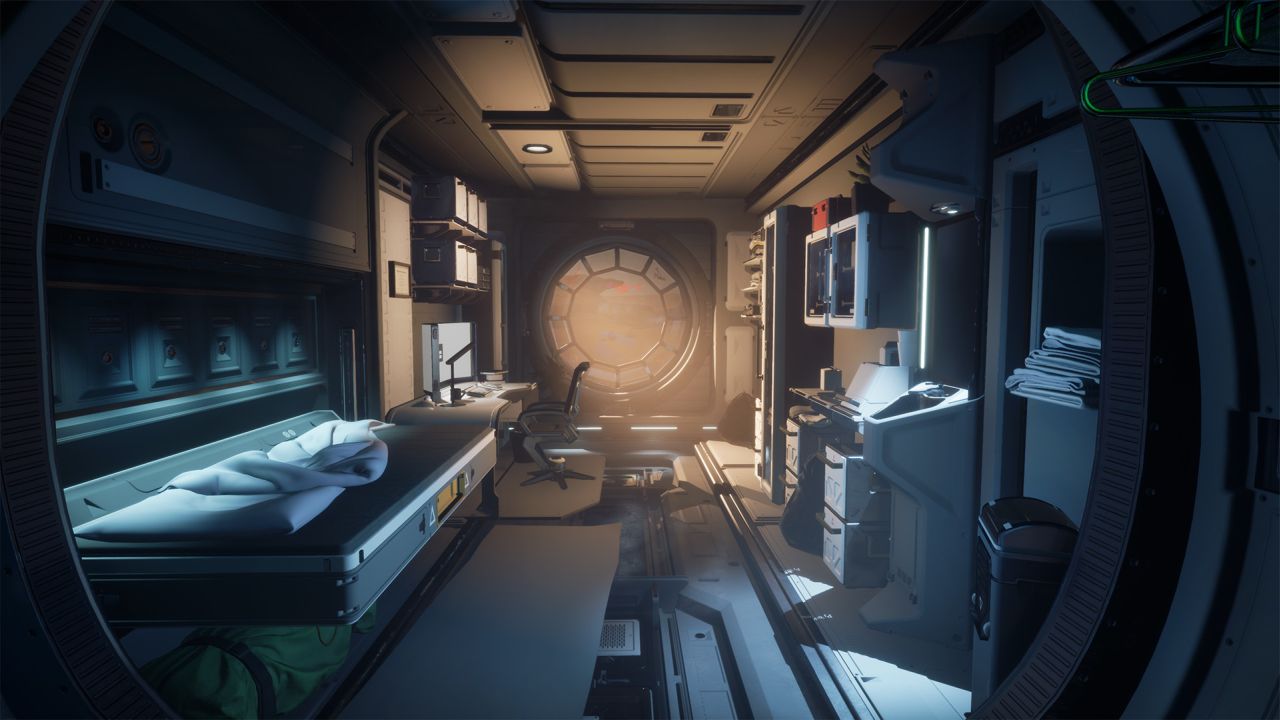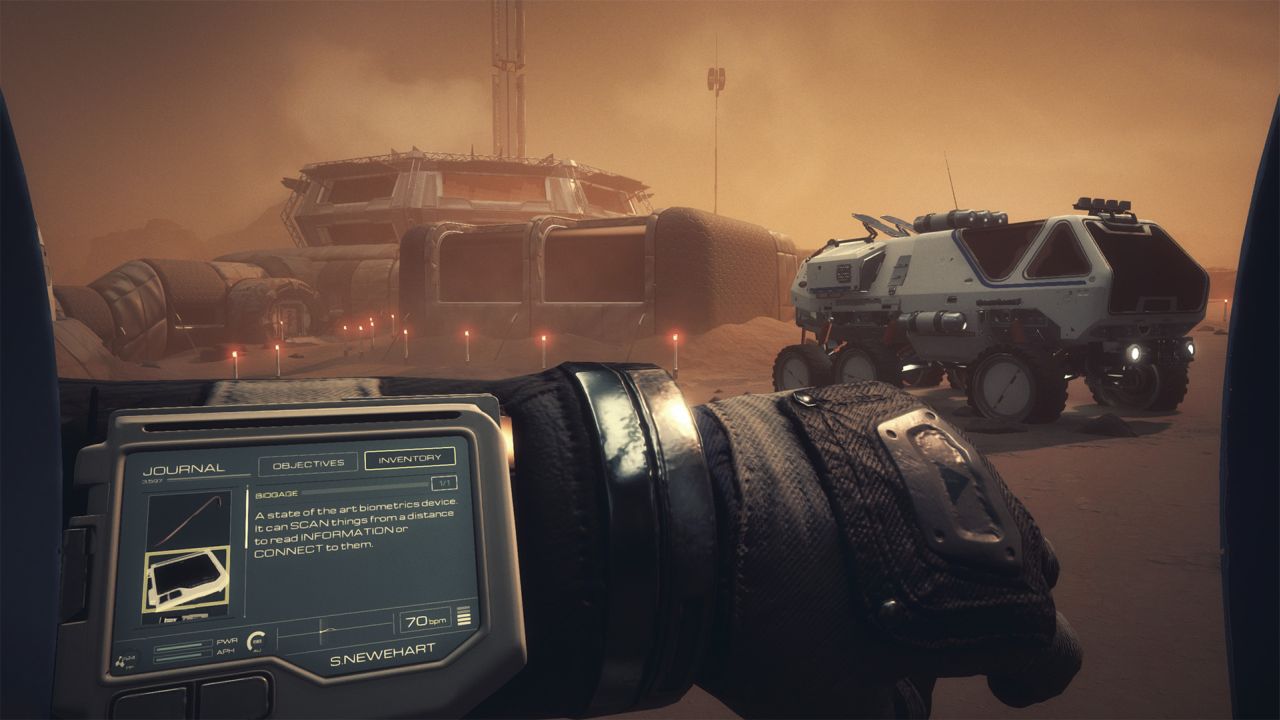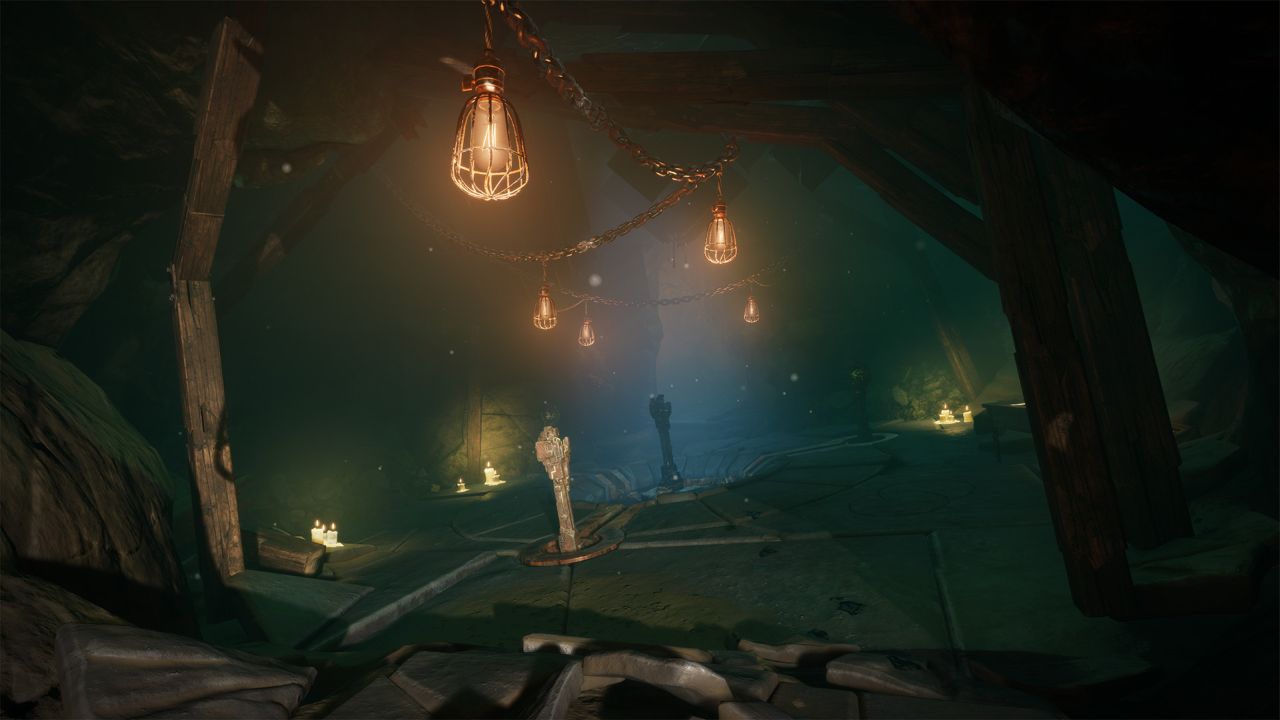Moons of Madness Review
What scares you? The question might seem innocent, but most people are good at narrowing it down to a single answer. A fear of heights, a fear of the unknown – the list goes on. Good horror games do that as well. Five Nights at Freddy’s is a game about a safe space that you thought was secure being breached. Silent Hill 2 is a game about the fear of failing the ones you love. Resident Evil is about the fear of unchecked corporate greed. Yes, monsters, zombies, and haunted animatronic mascots might be used to embody these fears, but what truly scares us is something relatable and human. The biggest problem with Moons of Madness, the new game from Rock Pocket Games, is that it can’t narrow itself down to a single fear.

Moons of Madness is a first-person horror puzzle game that has a lot of other elements nipping at its edges, begging for more attention. It’s trying to marry the space-horror of something like Dead Space with the incomprehensible horrors of Lovecraft. That’s not a bad instinct; Lovecraft’s idea of fearing the unknown works well in space, which is the ultimate unknown, but the game often finds itself running off on tangents that don’t fit thematically. And that same issue is true of the gameplay. The controls slow and cumbersome, which is good when you’re working on a puzzle or exploring a room, but occasionally the game will lurch into clumsy action sequences, which are betrayed by such mechanics. Add on pacing issues and bad voice acting, and Moons of Madness dissolves into a bit of a mess.
You play as Shane Newehart, the seemingly least-intelligent member of an expedition to Mars. Shane is being haunted by strange dreams, which sometimes become waking nightmares where he’s haunted by a feminine tormentor. Soon those dreams become a reality as a series of events cause Shane’s expedition to become a mission of survival. That description might seem a little vague and it’s hard to summarize because the plot often spirals out in different directions. With a much larger game, there might have been room to explore everything Rock Pocket wants to cover. There are elements of corporate greed and worker exploitation. There are questions about the dangers of humanity’s thirst for knowledge and a desire to play god. There’s a familial story about Shane’s relationship with his mother. It’s just a lot. In the 5-7 hour game, there isn’t enough time for all these story beats, so they all end up cannibalizing from each other until you don’t care about any of them. And that doesn’t even cover the exposition, which leans heavily on fleshing out the world through dry documents and logs, none of which really hooked me.
Through a first-person perspective, the game is largely about solving puzzles, which is a good setup for a space adventure. There are a lot of moments when the goal is to (and I quote Matt Damon’s character in The Martian), “science the sh*t out of this.” There’s always a broken-down generator or a malfunctioning radio tower that needs to be solved with pipe puzzles, power balancing equations, or something similar. On occasion, these puzzles can lead to some pixel hunting that feels frustrating, but for the most part, they are engaging and I wish that the set up was similar to the puzzle-horror game Year Walk, where the formula was for you to solve a puzzle and then have something jump out and scare you.

The way some of the puzzles work is smart, too. Newehart wears a comms device on his wrist which can be used to access computer systems remotely, so sometimes the puzzle you have to solve is right there on your wrist. It’s a clever mechanic and fits the game quite well. It’s also used to direct the player through the world and manage the inventory.
Had these puzzles stood on their own, Moons of Madness might work better, but Rock Pocket usually has you walk through endless corridors to find each puzzle while shoehorning in other mechanics. There’s a strange sequence where you’re running around a cave, illuminating power stones with telekinetic powers that never seems to go anywhere. One part makes you battle a plant-woman by pointing at parts of the screen and pressing button-prompts. Lastly, there are the infamous chase and stealth sequences that are almost rote in horror games at this point, which don’t work well with the game’s controls. The bottom of the barrel comes towards the end when the game exposits at you while locking you in a series of rooms, giving you nothing to do but listen to audio-logs – a pretty underwhelming plot device. There are bits of everything shoved into Moons of Madness, and with so many mechanics fighting for attention, they all end up wanting.
For the most part, the game looks quite good. I was particularly impressed with a lot of Shane’s animation like filling up his oxygen tank or donning the helmet of this space-suit. It’s smoothly done and the environments are impressively detailed. There is a sequence where you’re navigating through a series of broken walls which all look like repeated assets randomly smashed into the level, but it’s a weak moment in what is largely an impressive looking game. The creature design is also smart, though there aren’t enough of them to be a highlight. Audio though is a little disappointing. The voiceovers are definitely a sore spot and Shane’s acting, in particular, is unconvincing. How a horror game sounds is important as tension is often built through music, and the sound effects are half of a good jump scare. That subtle touch is missing from most of the sound design.

The game runs fairly well. I had a frustrating bug at the end that prevented me from solving a puzzle until I restarted, and I hit the occasional framerate issue, but largely the game was smooth and the surprising amount of loading screens are quick as you drive between bases.
Moons of Madness is one of those games that lacks focus. It’s already on the short end, but it really could have done away with a lot of the one-off mechanics that felt shoehorned into the experience, doubling down on the puzzles and leaving more room to explore rather than being directed from puzzle to puzzle. And the same is true of the story. There are so many themes and plot-twists, they all start to ring hollow. Moons of Madness feels like a game that ran out of time and had to be soldered together as best as it possibly could, and because it’s all these fragmented pieces being shoved together, it’s unable to find focus or theme. As it turns out, this version of Mars isn’t that scary, haunted or not.
